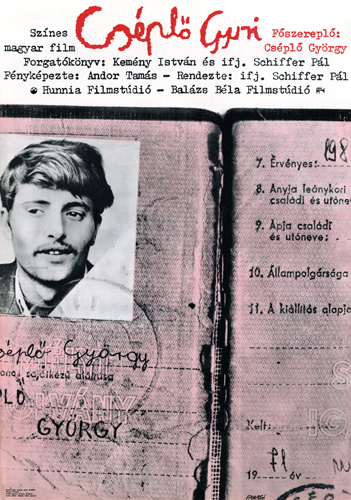The documentary endeavours of the Budapest School (a tendency in Hungarian filmmaking speared in the seventies which was dominated by a sociological point of view) prevail in this documentary-feature film, which is a “development novel” about György Cséplő, an intelligent and ambitious Roma boy, whose attempt to break out of his miserable existence offers a sketch of the situation of the Roma population in Hungary in the 1970s.
The director shot his situational documentary by setting the scene but then not interfering in the sequence of events (as long as one does not consider the presence of a camera a manner of interference). Schiffer wanted to make the documentary lively and current in order to enable the viewer to participate emotionally.
One of the most interesting diagnoses of the film (which harmonizes with the research of the legendary sociologist István Kemény) is that the poorest, most vulnerable groups of society live and think in the same way, Roma and non-Roma alike, so the so-called Roma question can be approached from the perspective of social stratification, not as an issue of race.
Produced by BBS and Hunnia Studio in 1978.

